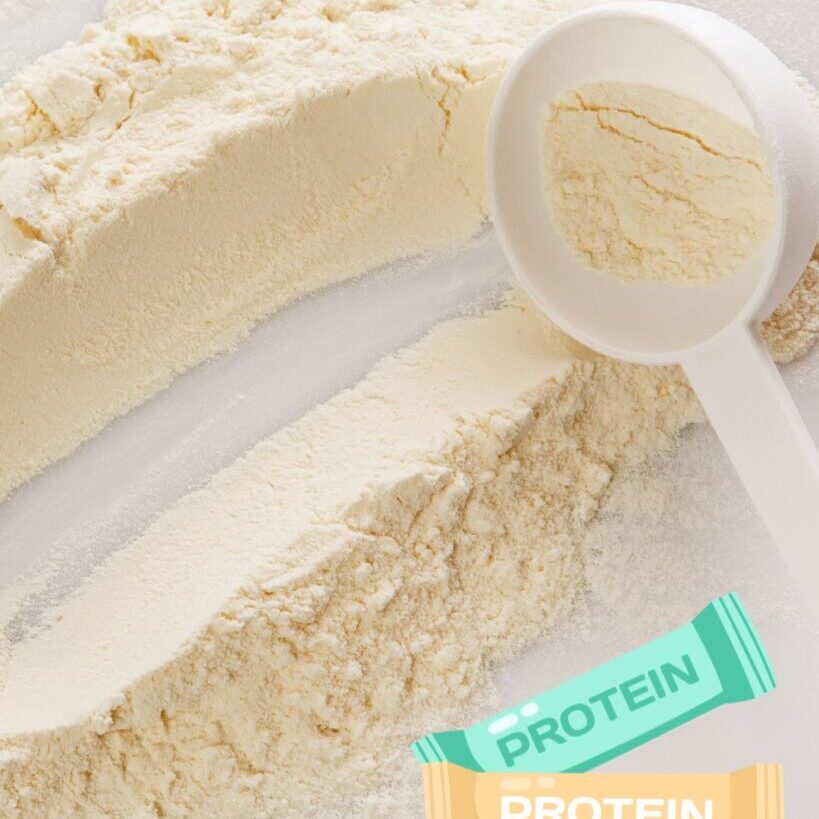Whey Protein vs Plant-Based Protein: Which is Better?

Are you in the market for a protein powder but completely confused about what to get? I’m right there with you. The dizzying amount of products is overwhelming, with everyone claiming that their protein powder is “the best.”
One of the main decision points is between two of the most common versions, whey protein vs plant-based protein options. Which one truly comes out on top?
Let’s discuss the pros and cons of these top choices so you can decide if whey or a plant-based protein powder product is the best choice for you.
What is Whey Protein?
Whey protein is popular, and for good reason. Studies have shown it’s easy to absorb and can be helpful for those looking to boost muscle growth and recovery after a workout.1
But what is whey protein? Whey, which is a protein found in milk, is separated, processed, and made into a powder. It’s considered a “complete protein,” meaning it has all the essential amino acids that our bodies cannot make on their own.
Of note, whey is particularly high in leucine, which is a key amino acid needed for making muscle.2 This is why whey protein is often touted as the best choices for bodybuilders and athletes.
What is Plant-Based Protein?
Plant-based protein sources do not come from an animal; they are derived from sources like peas, rice, hemp, soy and chia seeds. Some are single-source (like pea protein), while others are blended to have a wide range of amino acids in the final product.
Plant proteins are often “incomplete” proteins because they lack or are low in one or more of the essential amino acids. But when combined, these deficiencies are typically fixed.
Plant-based proteins are usually preferred by those who are vegan, lactose intolerant, or simply want an animal-free option.
Whey Protein vs Plant-Based Protein: Digestibility and Absorption
When it comes to deciding between whey protein vs plant-based protein, is there a digestive or absorption advantage to one or the other?
- Whey protein: Whey protein tends to get absorbed quicky and efficiently and provides amino acids in optimal ratios.3 This makes it a popular choice as a post-workout shake. However for those who have dairy intolerances or sensitivities, whey may not be the best option.
- Plant proteins: Reports on digestibility are mixed, but overall, most can digest and absorb pea protein fairly well. Occasionally there are reports of gas or bloating, but choosing an isolated pea protein usually solves this problem.
Overall, both choices are well absorbed, but then it comes to intolerances and sensitivities, proteins such as pea protein and the like may win out in the whey protein vs plant-based protein debate.
Whey Protein vs Plant-Based Protein: Muscle Building
Let’s be honest … here’s what people care about most. Which helps me build muscle most efficiently? Let’s dive in.
- Whey protein: Because whey protein is absorbed very readily by the muscles, it tends to be a top choice for people who seriously strength train. In fact, studies suggest it may help boost muscle growth, quicken recovery, and even delay soreness after intense workouts.3
- Plant-based protein: Studies on the role of plant-based proteins post-workout are mixed, but studies do show a boost in muscle growth post-workout. However when compared against whey protein, it often does not perform as well.3,4
When it comes to avid strength trainers, whey protein may have an edge in the whey protein vs plant-based protein debate. But both clearly offer benefits, and when it comes to any digestive issues or intolerances, plant proteins still offer what you need for muscle growth and overall strength.
In fact, studies suggest that when total daily protein intake is sufficient (ie, you get enough protein during the day from all sources), using plant proteins can be just as effective as whey protein.5
Whey Protein vs Plant-Base Protein “Extras”
Another consideration when it comes to whey vs plant-based proteins is what else comes in the package. Often times, what’s in the bottle may or may not always be what we want. “Extra” is not always more.
Many products come packed with an array of vitamins, antioxidants, green powders, and even fibers to help round out the nutrition content. While helpful in some ways, it can at best be confusing and worst, impact the digestibility and absorption of the product overall.
Don’t get me wrong. Additions like hemp seed, flax, omega-3 fatty acids, greens, and the like are generally just fine for most. I like many of those, if it’s a brand I trust. But if all you want is raw protein … and especially if you can’t tolerate some of those “extras,” be sure to read your labels carefully.
The Bottom Line
When it comes to whey vs plant-based protein, neither is universally “better.” The right choice depends on your body, your digestion, and your goals. Whey may be the better choice if you want the most research-backed option for muscle growth and recovery, and assuming you tolerate dairy well.
But plant-based proteins may be the better choice if you can’t tolerate dairy, are vegan, or just want a more sustainable, non-animal option.
Whatever you end up choosing, you will promote muscle growth as well as overall health and vitality. And in some cases, it may simply come down to cost, availability and flavor. Either way, your muscles win. Go with what makes both you and your wallet happy.
References:
